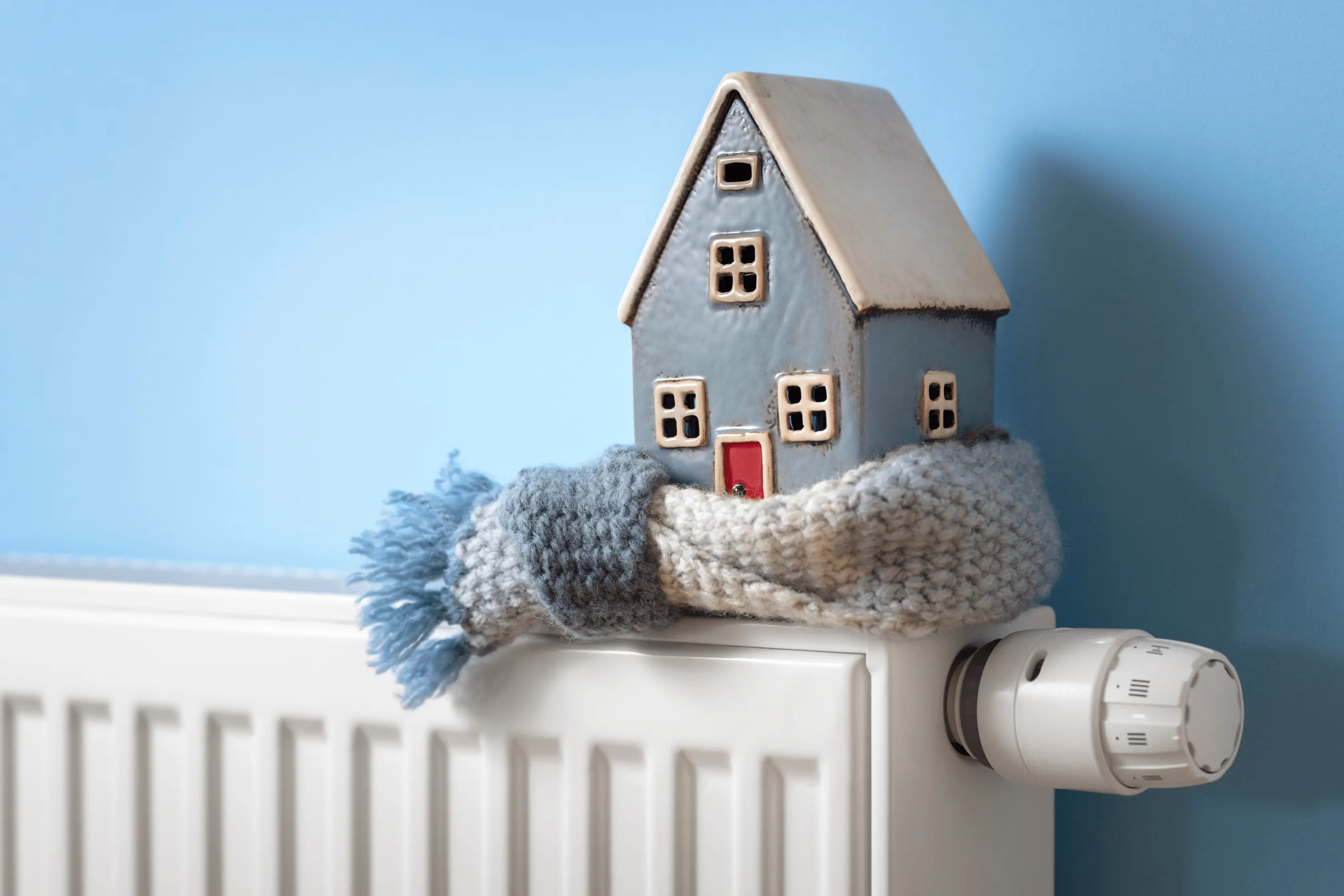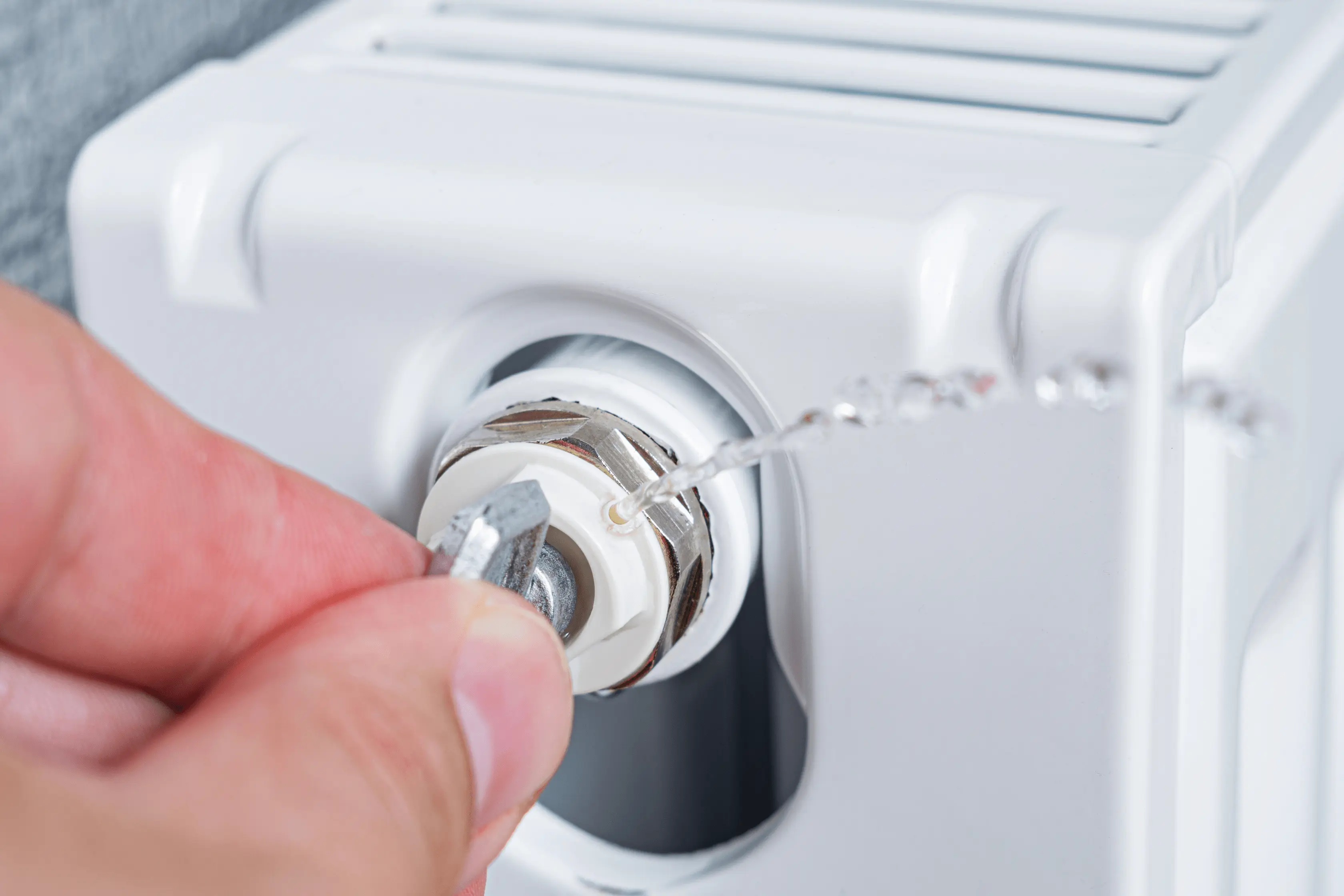Is your radiator not heating up? No need to panic, it’s actually quite a common issue especially when changing a radiator.
Whether some radiators are not heating up or it’s all of them, our Bathroom Takeaway experts have come together to give you the main reasons your radiator may be cold and how to resolve them.
Reasons To Why Your Radiators Could Be Cold
Are you unsure why are radiators not heating up in your home? Or perhaps you have a collection of radiators that are cold. These are the primary reasons why it may be the case.
- Air in the system
- Fuel source has run out
- Pipework Debris
- Circulation pump isn't working
- Lockshield valve is fully opened or closed
- Thermostatic radiator valve is stuck
So now we know the main causes. How do we eliminate each option as being the cause of your radiators not heating up?

How To Fix Cold Radiators In Your Home
1. Air In Your Heating System
New radiator not heating up? A well known cause of radiators not performing as well as you may want them to is having air stuck in the system. To remove air from a radiator simply.
- Insert the radiator key into the bleed valve and position a cloth underneath to catch any water.
- Slowly turn the radiator key counterclockwise until you hear a hissing sound, indicating the air is escaping.
- Once water begins to leak from the valve, turn the key clockwise to close the valve and tighten it back up.
2. Fuel Source Has Run Out
Yes! Although it may have not crossed your mine it is possible your energy source may have run out! If your central heating system relies on heating oil,LPG or wood pellets this is a likely possibility.
If the levels of these fuel levels get too low, debris could enter the tank and your heating system, potentially requiring a power flush of the heating system.
3. Pipework Debris
Now if your pipe work is blocked, this can be caused by a buildup of sludge, limescale, and rust. This is a problem that can be built up overtime starting off as a small blockage and gradually building up to one that affects your radiator's heating up.
If only one radiator is affected, you may be able to remove and flush it with a garden hose before reinstalling. However, if multiple radiators are not heating up, it's likely best to have them professionally power flushed.
4. Faulty Circulation Pump
If some or all of your radiators are not heating up, the issue may be with the circulation pump.
If the system experiences blockages or airlocks, there are several signs to watch for, beyond the radiators failing to heat up. These include a water leak from the pump, unusual noises coming from the pump, a hot pump casing, and a lack of hot water.
In such cases, it's best to call in a plumber to diagnose and fix the problem for you.
5.Lockshield Valve Is Fully Opened Or Closed
If you're questioning why is my radiator not heating up? Then it could in fact be by the radiator lock shield.
When a radiator is moved, such as to paint behind it, the valve controlling the radiator's water flow is often fully closed. Then, when the radiator is replaced, the valve may be opened all the way, rather than returned to its previous, partially open position - which is typically just a quarter turn open
6.Thermostatic Radiator Valve Is Stuck
If you don’t know why is one of my radiators not heating up and the others are, it could be a simple case of your radiator valve being stuck.
To fix this, use pliers and grease like WD40 to carefully press the pin in and pull it out, until it frees up. Avoid using excessive force, as that could damage the pin. If you're unable to free the pin, we recommend contacting a professional for assistance.

Frequently Asked Questions
Why Are My Radiators Not Heating Up After Bleeding?
Properly bleeding the system or having a complex radiator layout can allow air pockets to remain in your system, even after the initial bleeding process. Addressing these stubborn air pockets is essential for restoring efficient heating performance. If you are still struggling, we recommend contacting a specialist to take a look.
How Long Does It Take To Bleed Air Out Of A Radiator?
To completely bleed the air out of a radiator it approximately takes around 15 - 30 minutes.
How Will I Know I Bled My Radiator Properly?
If bled properly then your radiator should stop making hissing sounds and water starts to trickle out the valves. If you are unsure how to properly bleed a radiator, take a read of our blog to find out how.






















